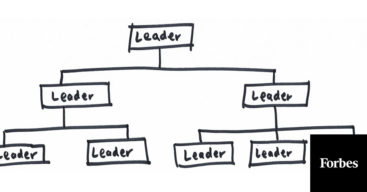Originally published October 7, 2020 on Forbes
Over the past forty years, business has worshipped at the altar of economic efficiency. Beneath countless management fads and trends have been three simple goals: cut costs, grow profits, and increase share price.
On the surface, this calculated agenda looks inarguably smart, providing the seemingly perfect engine for economic expansion. But just below the surface lies a dark side of using these narrow goals to make complex and messy decisions: when decoupled from a moral foundation, they tear at our social fabric.
Free market economists have helped lead this decoupling process. For years they’ve argued the best way to organize a prosperous and healthy society is to let individuals maximize their own financial self-interests through private markets. Collective selfishness, they contend, leads an “invisible hand” to guide society down the right path as competition dynamically optimizes for the best outcomes.
There are two problems with this argument. First, the US economy isn’t as competitive or free as some would have us believe, with much of the inefficiency advantage going to corporate interests and never really “trickling down” to the rest of society. Second, aggregated short-term private selfishness doesn’t actually produce long-term public good. In theory, that’s why we have government to intervene. Herein lies the challenge.
Over the past several decades government has neglected to play a proper balancing role in capitalist markets, instead jumping into bed with free market economists. Politicians have largely avoided making difficult decisions on tough topics such as climate change, inequality, stagnant wages, and common-sense financial regulation. In essence, they’ve cut a Faustian bargain by letting the fiction of an invisible hand pick-pocket our long-term future in order to drive short-term growth. To make matters worse, the spoils from this unholy bargain are accruing to an increasingly small percentage of those at the top. What’s blindingly obvious to anyone paying attention is that we need to rebuild our social contract to better serve our whole country and not just a powerful elite.
Of course, none of this is new. Articles and books on these topics have been written with increasing frequency since the 2008 financial meltdown. Even economist Alan Greenspan, former Chair of the Federal Reserve and one of the architects of thirty years of free market policies, admitted in 2008 that he was “in a state of shocked disbelief,” acknowledging that he had put too much faith in the self-correcting power of self-interest and free markets. Yet still, according to a sobering Wall Street Journal report, not a whole lot has changed since the 2008 crisis.
This begs the question: If the 2008 financial crisis, which would have brought down our global banking system were it not for a taxpayer-funded bailout (ironically, a move that reeks of just the socialism that free-marketeers like to rail against), wasn’t enough of a wakeup call to change our economic zeitgeist, what is?
It’s tough to say. The idea of stakeholder capitalism is gaining some steam and producing positive stories, but it still lives inside a system geared towards shareholder primacy. Many companies are being called out for giving lip service to stakeholder capitalism while not genuinely trying to advance the ball. Nevertheless, momentum continues to build: This September, the World Economic Forum, in conjunction with the world’s largest accounting firms published a comprehensive framework for measuring stakeholder capitalism. It’s a useful document, but it lacks the teeth for producing real change.
So, where will real change come from? Ultimately, one place: civic education and participation.
We as citizens must demand, with our voices and votes, the sort of policy and economic changes we want to see. Thomas Jefferson’s words from 1820 are just as true in 2020. “I know no safe depository of the ultimate powers of the society but the people themselves; and if we think them not enlightened enough to exercise their control with a wholesome discretion, the remedy is not to take it from them, but to inform their discretion by education.”
One useful topic of education for all of us is basic economics. Economics lies beneath everything. As noted British economist John Maynard Keynes observed, “The ideas of economists and political philosophers, both when they are right and when they are wrong, are more powerful than is commonly understood. Indeed, the world is ruled by little else.”
Unfortunately, many people think that economics is too complicated to understand. “Economists have been fantastically successful in making people believe that [economics] is…more difficult than it really is,” says Cambridge economist Ha-Joon Chang. “95% of economics is common sense. It’s just made to look difficult through the use of jargon and mathematics.”
That perceived difficulty is a significant barrier to a well-functioning democracy. Since the early 1970s, economic reasoning has come to dominate political and judicial decision-making and thus our entire society. It’s easy to understand how this happened: Economics provides rational, unemotional cost-benefit analyses for complex and thorny issues from business and investing, to crime and pollution. Even adultery has been examined through an objective economic lens.
This mathematicised view is so seductive in its reductionist clarity of the world and so ingrained in our national psyche that it’s tough to even notice it, let alone question where it’s overstepped desirable boundaries and crowded out other important ideas like character, morality, well-being, equality, and the environment. Three recent books are particularly useful in shedding light on the economic mental models we all live within: Doughnut Economics, Transaction Man, and The Economists’ Hour. Together they explain our journey to the present moment and how narrow economic goals and thinking are at the root of many challenges we now face.
On the flip side, an equally important topic of education is for economists to understand the humanities. Northwestern economist Morton Schapiro wrote a 2017 book with literary critic Gary Saul Morson about the problems created by using math-based models to solve human-centered challenges. “We’re not comfortable with things that we can’t put into an equation,” Schapiro shared, “and I think we lose a lot because of that.” Humans, it turns out, in one of those I-can’t-believe-I-have-to-actually-point-this-out insights, need the humanities.
We’re at a powerful moment right now. A global pandemic is exacting a costly and unequal toll on our economy and the human beings who live inside it. Yet, amidst the tragedy there is a silver lining: It is bringing into clear focus fractures in our society that need to be fixed. It’s waking us up to the fact that economics is not a set of “value-free” scientific laws, but rather value-laden judgment calls that have a real impact.
In the months and years ahead, we have to open our eyes to what’s happening around us. We have to speak up for the economic goals we feel are important, not just accept the ones we’re being fed. And we have to elect leaders who will fight for a more sustainable form of capitalism.
Our country won’t survive if we don’t create legitimate opportunities for everyone to thrive.



